I was speaking recently to a dairy-calf-to-beef farmer who finishes 150 dairy beef animals annually.
He places a lot of emphasis on calf purchase and getting the right type of calf.
The old saying " The day you buy is the day you sell" was never more true than when it comes to calf purchases. Buying a calf born early in the season is also a good tip as the early calf will gain more from grass in its first season and will be more likely to hit targets throughout its lifetime.
Spring calf health: calving the cow: targets for dairy beef.
Healthy calf
Starting with a healthy calf is an absolute must. A strict purchasing policy should be established at the outset to ensure calves come onto the farm in a healthy condition. If there isn't a strict purchasing policy there will be:
Higher mortality.Increased veterinary bills.Higher rearing costs.Lower performance rates.Some of the key components of a purchasing policy are:
Buying calves that are over two weeks of age.Only source calves that are over 50kg.Don't purchase calves that appear empty or dull.Identify a few farmers where you know colostrum management is good and that have healthy herds.Record where calves come from so you can look back at their performance.Its important to visually assess all calves before purchase and handle each calf and examine thoroughly for any signs of scour, pneumonia, swollen naval, hurts, lameness, or other abnormalities. Ensure that all calves purchased:
Are healthy and alert.Have a clean, dry shiny coat.Have no stiff joints and are moving freely.No discharge from the nose or mouth.Show no signs of dehydration.Have a clean and well sealed navel.If in doubt about the health status of a group of calves, check the temperature of a few calves. A sick calf can often show little symptoms but they may have an elevated temperature. A temperature of above 39.5°C indicates a fever and the calf shoudn't be purchased.
Choosing the right calf
Look for a well-conformed calf. Asking a few questions about the sire of the calves could also be helpful.
Some of the very easy-calved, short-gestation bulls being used on the dairy herd at the moment have very poor beef characteristics. It's no harm to check out the sires of some of the calves you are going to purchase.
I was speaking recently to a dairy-calf-to-beef farmer who finishes 150 dairy beef animals annually.
He places a lot of emphasis on calf purchase and getting the right type of calf.
The old saying " The day you buy is the day you sell" was never more true than when it comes to calf purchases. Buying a calf born early in the season is also a good tip as the early calf will gain more from grass in its first season and will be more likely to hit targets throughout its lifetime.
Spring calf health: calving the cow: targets for dairy beef.
Healthy calf
Starting with a healthy calf is an absolute must. A strict purchasing policy should be established at the outset to ensure calves come onto the farm in a healthy condition. If there isn't a strict purchasing policy there will be:
Higher mortality.Increased veterinary bills.Higher rearing costs.Lower performance rates.Some of the key components of a purchasing policy are:
Buying calves that are over two weeks of age.Only source calves that are over 50kg.Don't purchase calves that appear empty or dull.Identify a few farmers where you know colostrum management is good and that have healthy herds.Record where calves come from so you can look back at their performance.Its important to visually assess all calves before purchase and handle each calf and examine thoroughly for any signs of scour, pneumonia, swollen naval, hurts, lameness, or other abnormalities. Ensure that all calves purchased:
Are healthy and alert.Have a clean, dry shiny coat.Have no stiff joints and are moving freely.No discharge from the nose or mouth.Show no signs of dehydration.Have a clean and well sealed navel.If in doubt about the health status of a group of calves, check the temperature of a few calves. A sick calf can often show little symptoms but they may have an elevated temperature. A temperature of above 39.5°C indicates a fever and the calf shoudn't be purchased.
Choosing the right calf
Look for a well-conformed calf. Asking a few questions about the sire of the calves could also be helpful.
Some of the very easy-calved, short-gestation bulls being used on the dairy herd at the moment have very poor beef characteristics. It's no harm to check out the sires of some of the calves you are going to purchase.




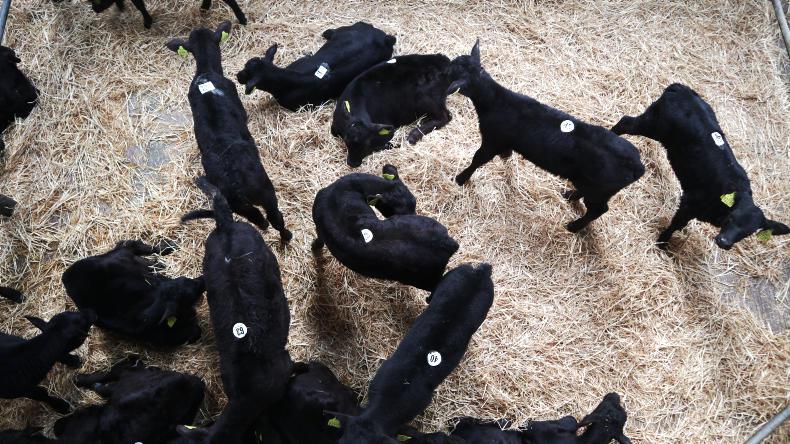
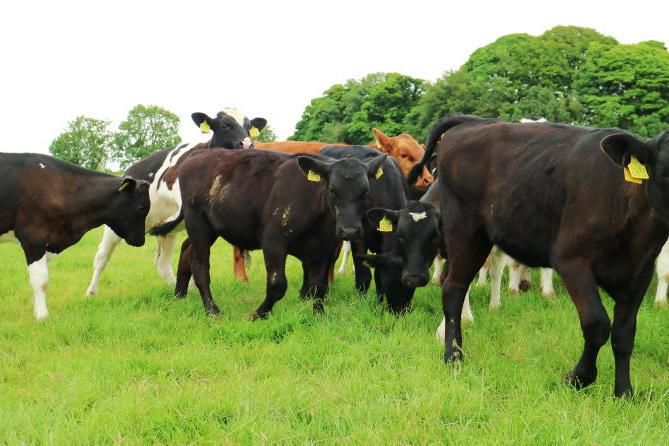
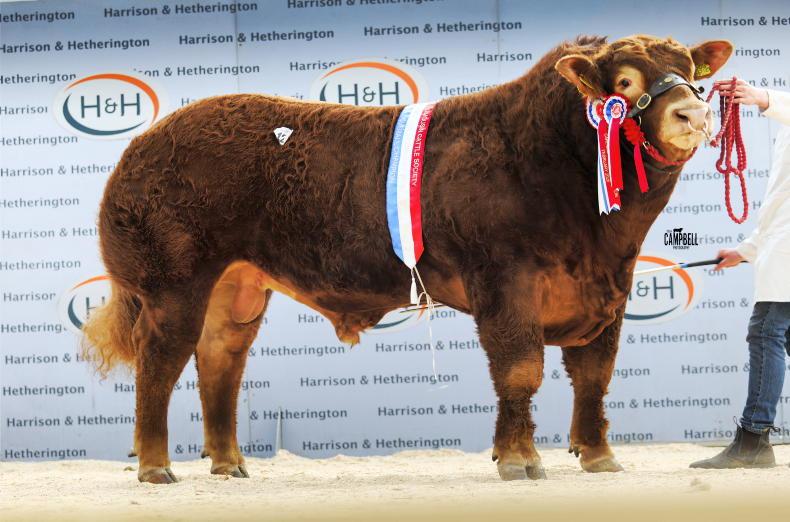
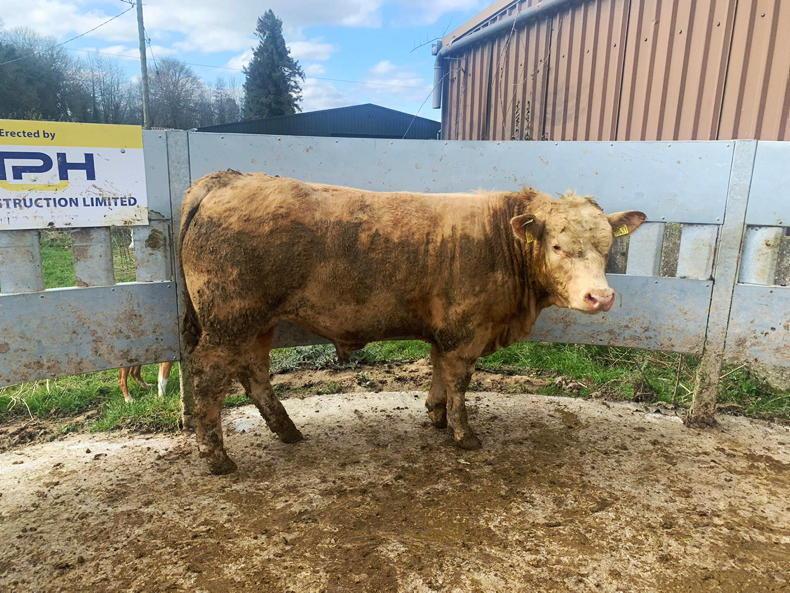
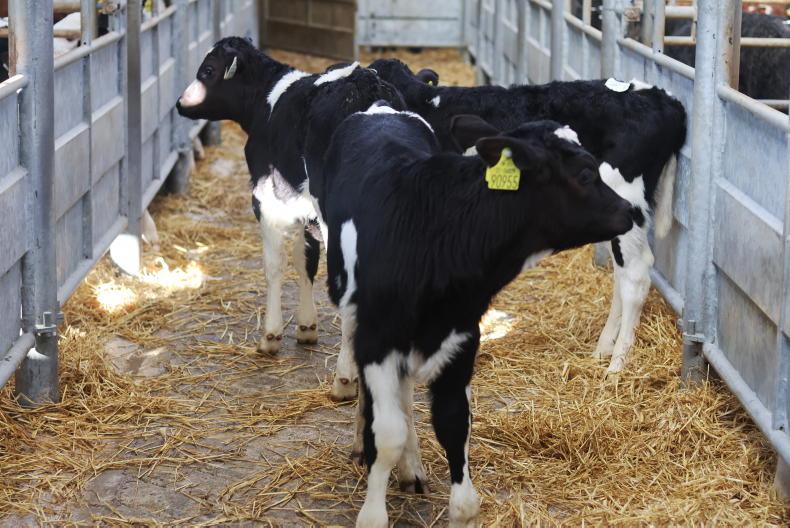
SHARING OPTIONS